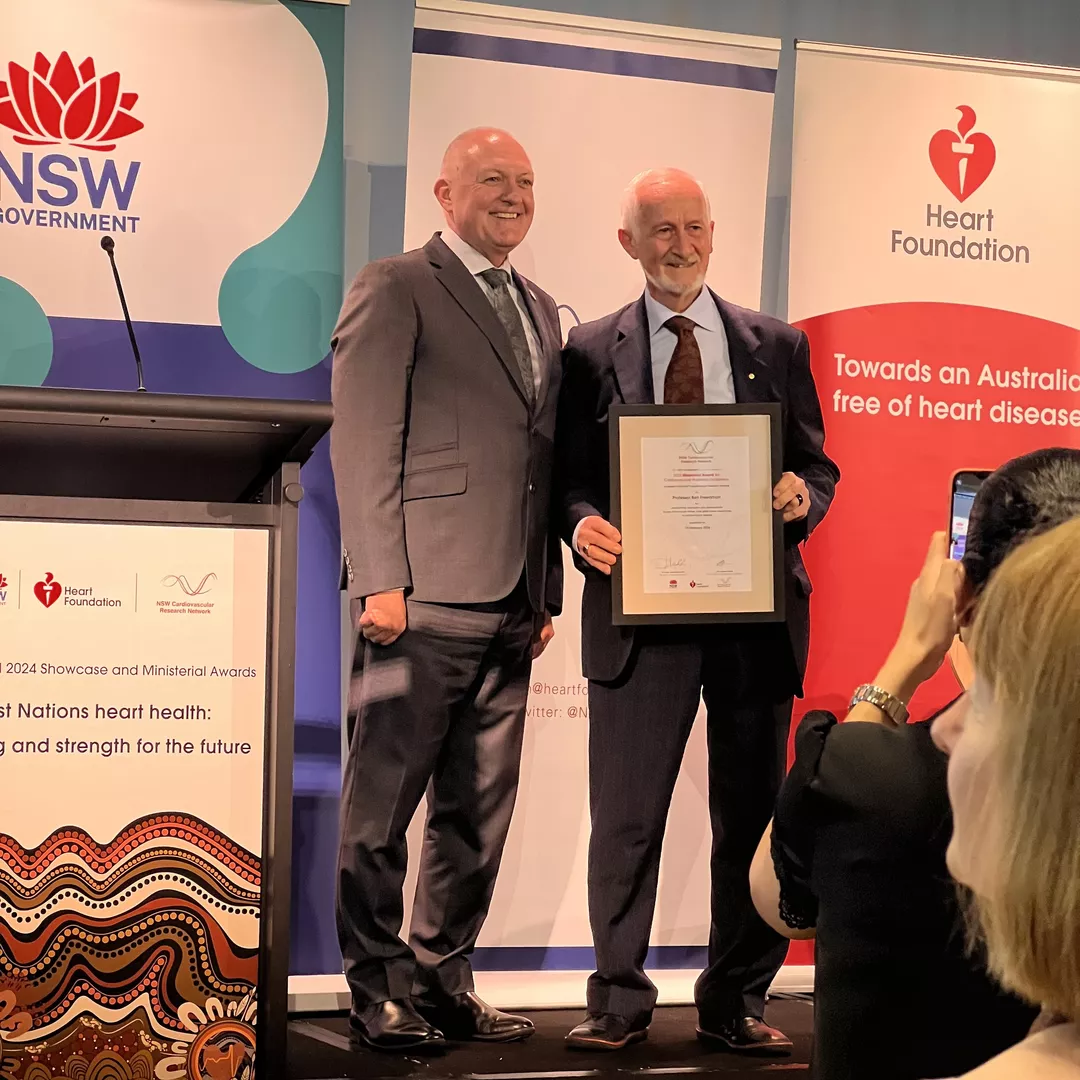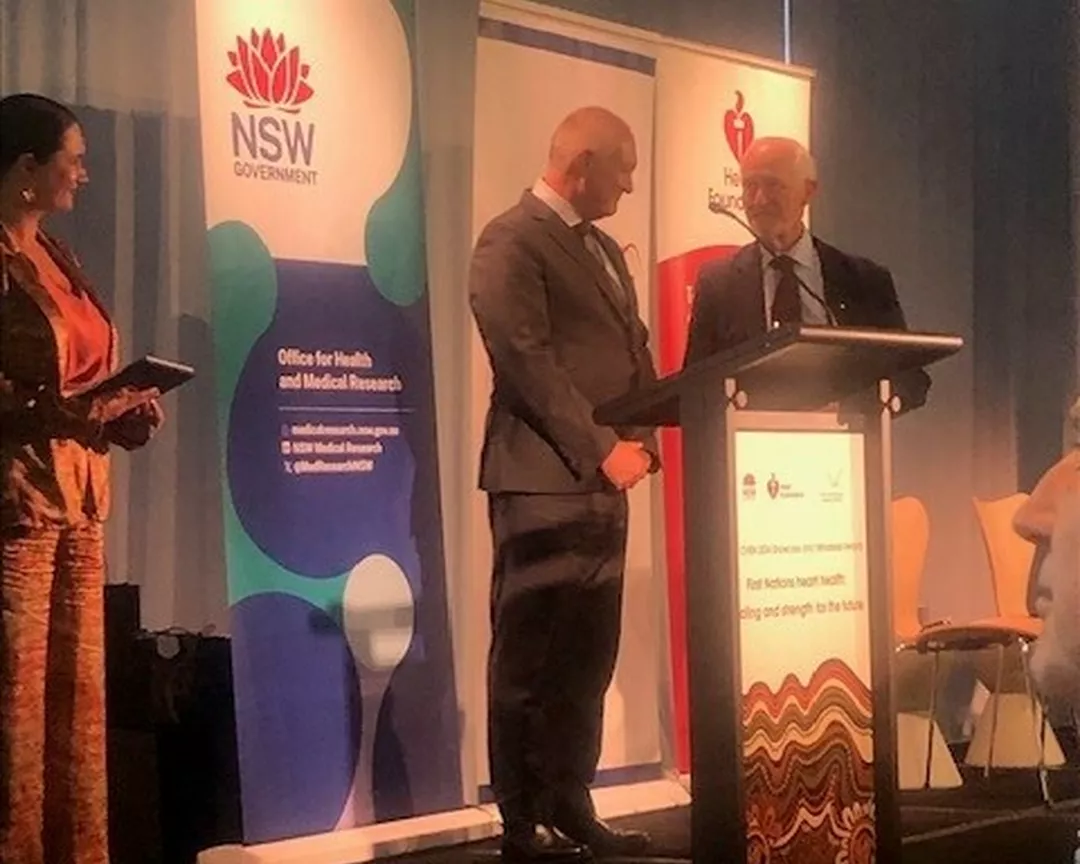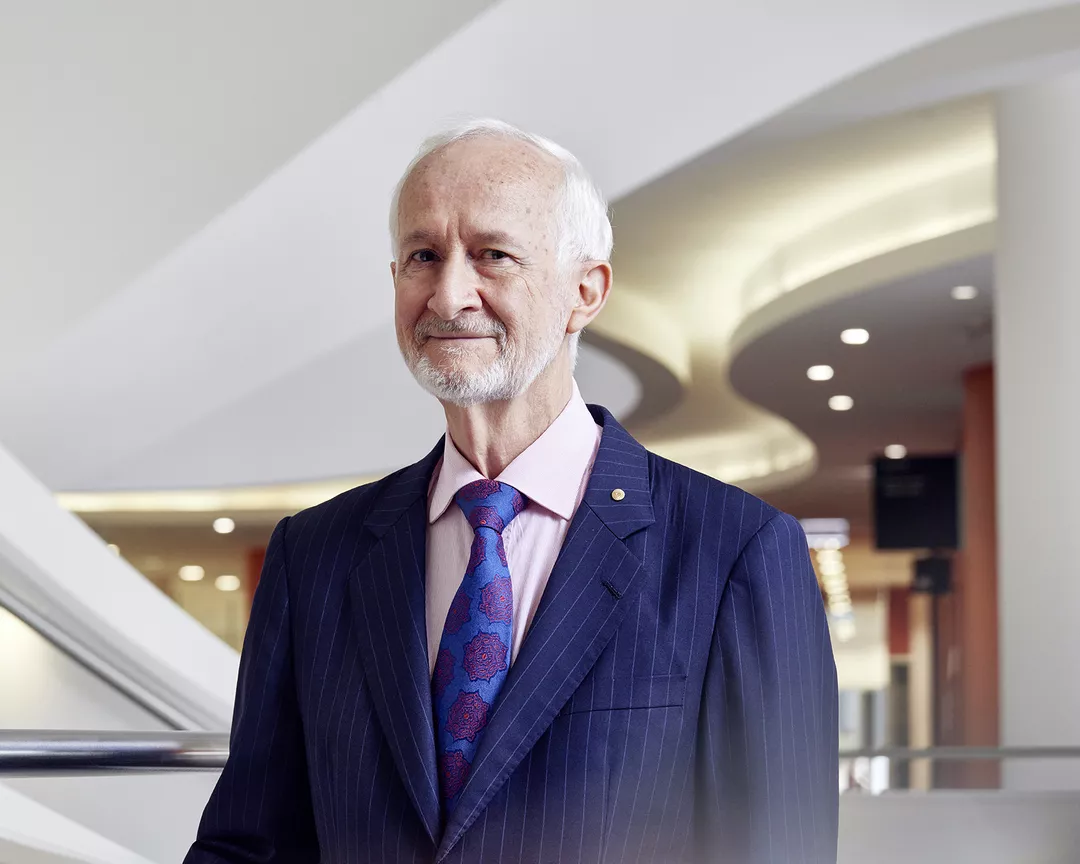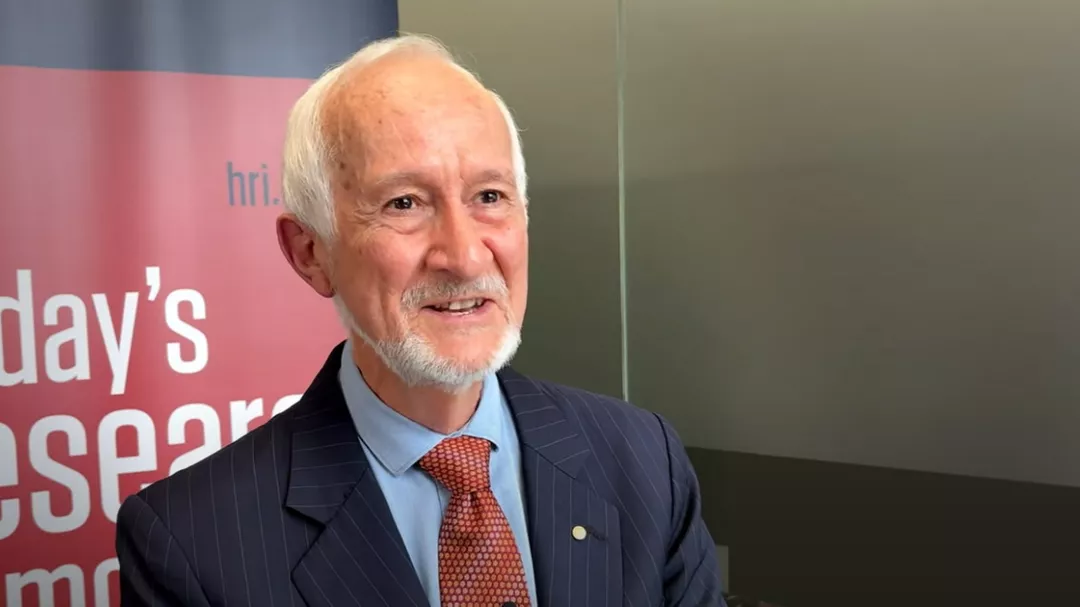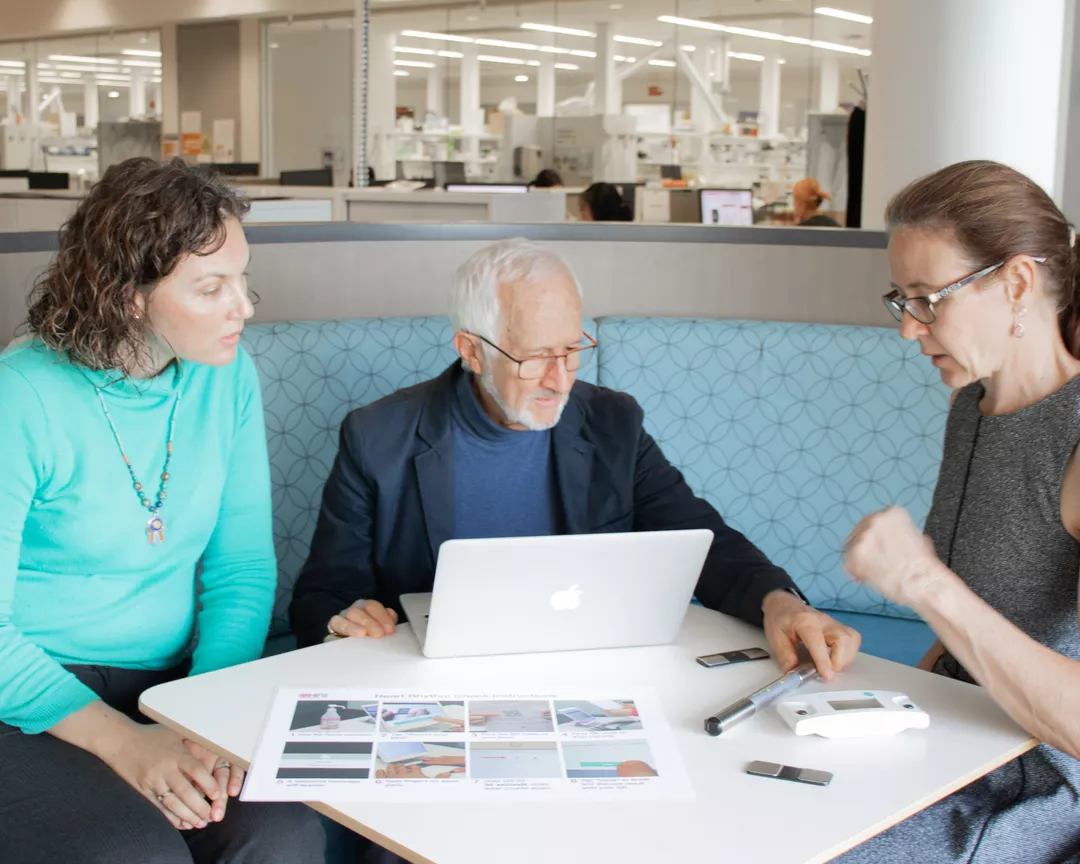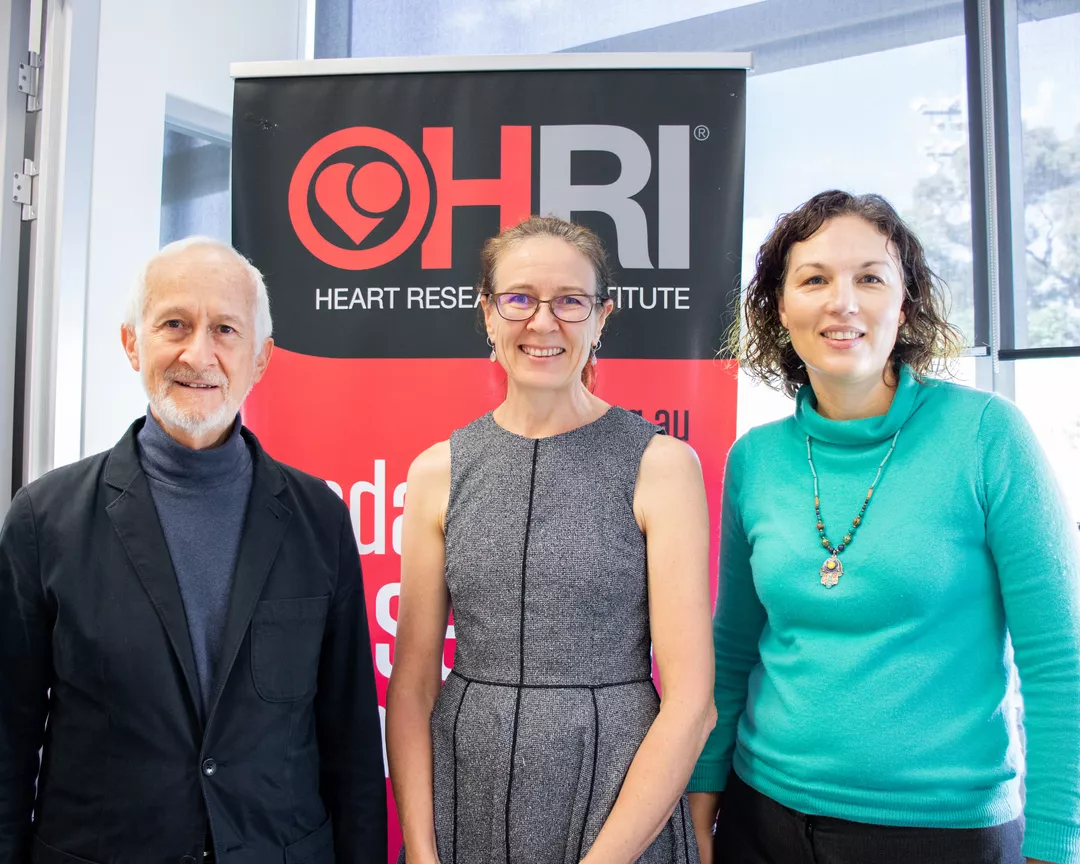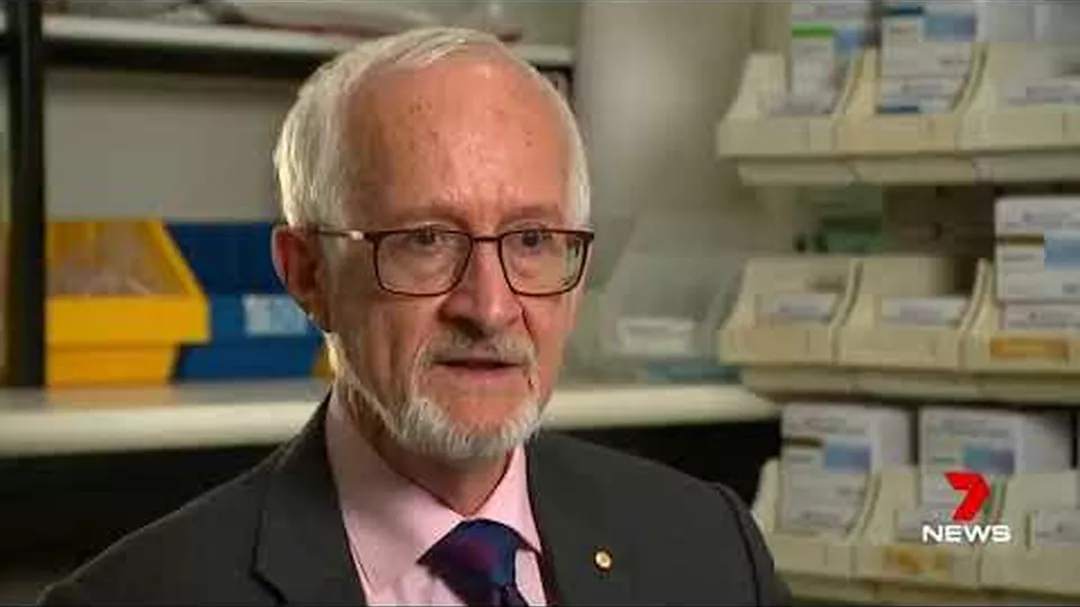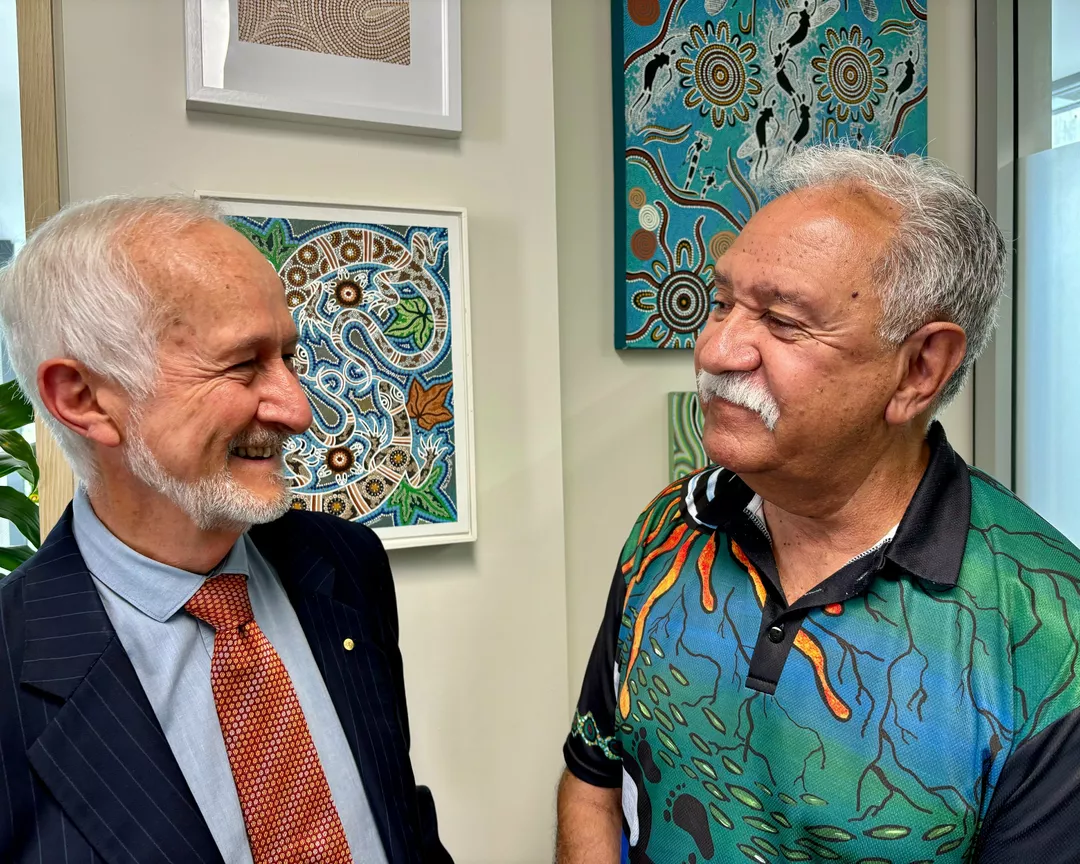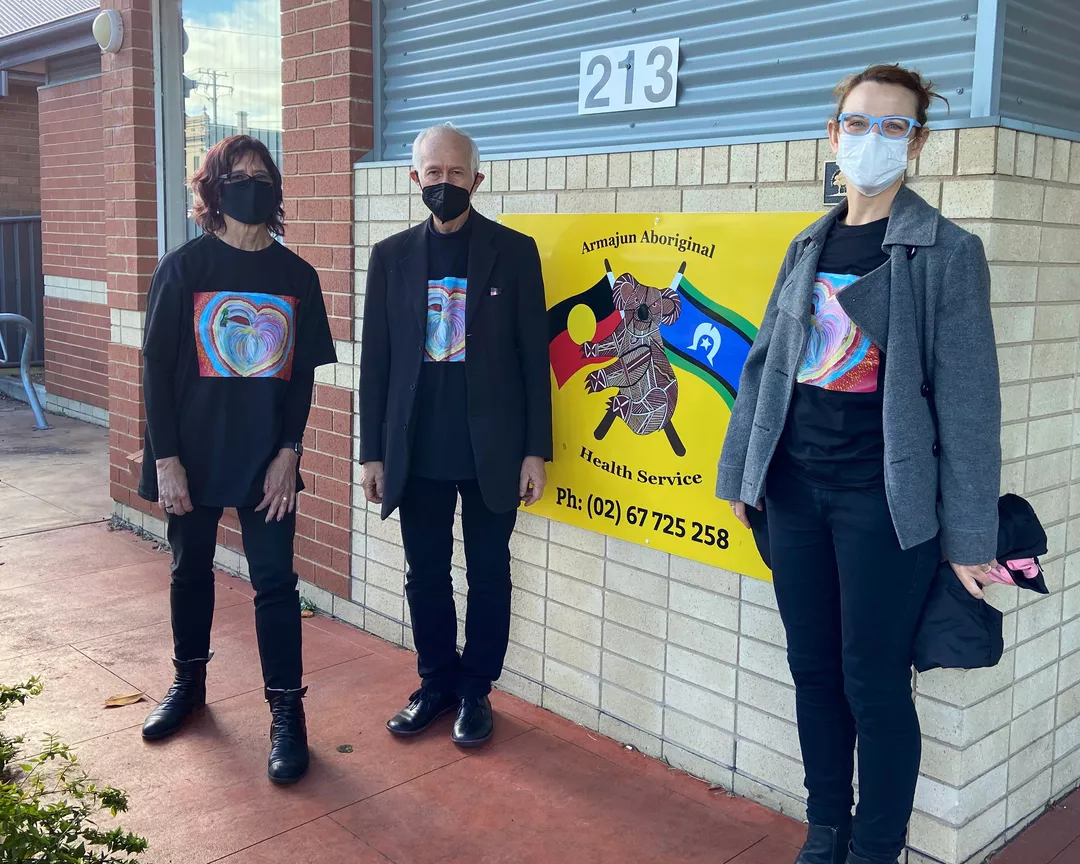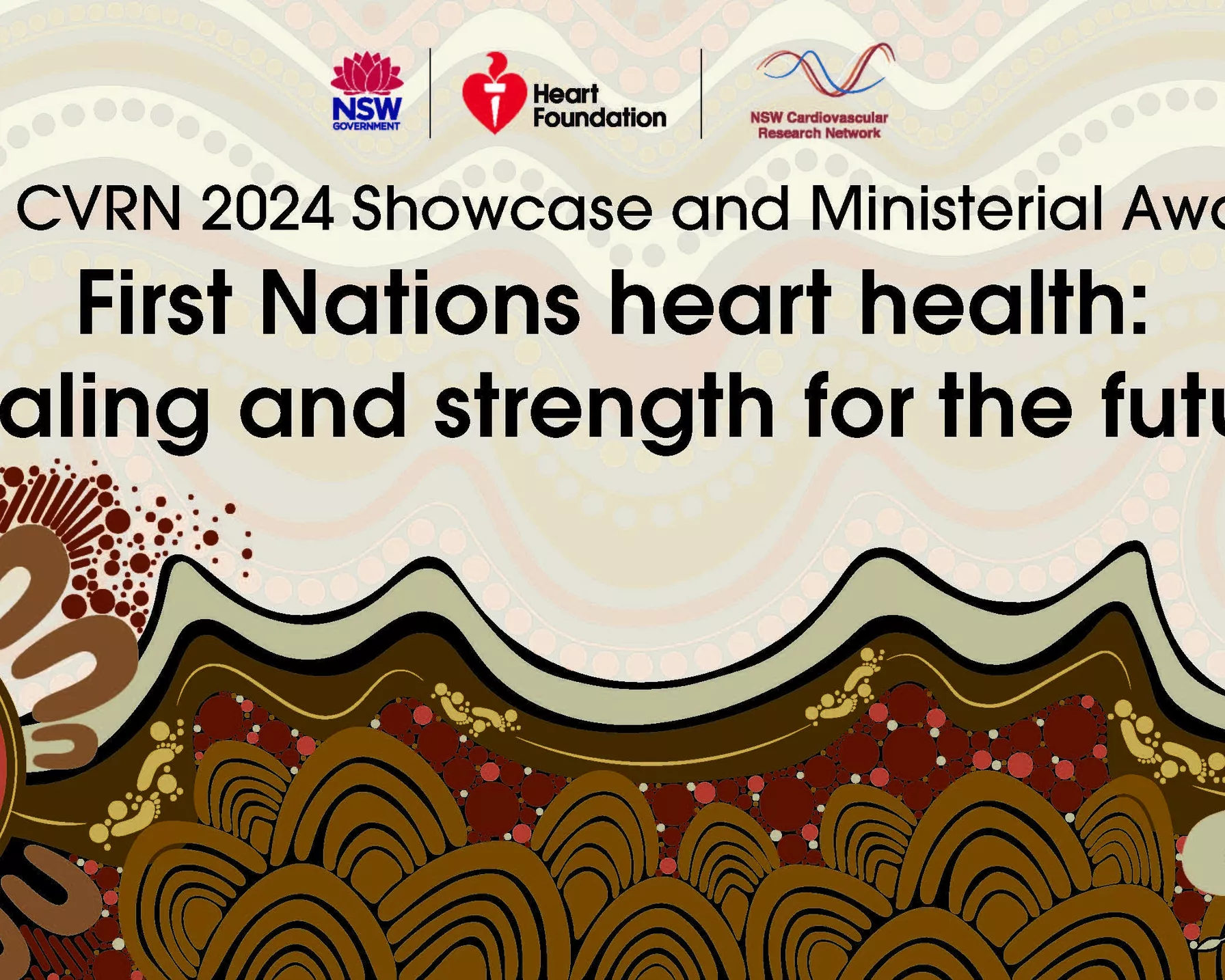Congratulations to Prof Ben Freedman OAM, who has been awarded the prestigious 2023 Ministerial Award for Cardiovascular Research Excellence.
Prof Freedman, the Director of External Affairs at HRI, was recognised for his outstanding contribution and life-long commitment to research in cardiovascular disease by the New South Wales Cardiovascular Research Network (NSW CVRN).
The awards ceremony, held last night, was attended by Governor of NSW Margaret Beazley and the awards were presented by the Minister for Medical Research, David Harris MP.
This year, the Showcase was titled 'First Nations Heart Health: Healing and Strength for Future', to highlight the groundbreaking work from researchers, like Prof Freedman, having a positive impact in First Nations communities.
Prof Freedman has had a remarkable 40-year career as a researcher and clinician and is currently the leader of the Heart Rhythm and Stroke Prevention Group at HRI. He is also an Honorary Professor of Cardiology at The University of Sydney and a former head of Department of Cardiology at Concord Hospital.
Prof Ben Freedman OAM being presented with his award by the Minister for Medical Research, David Harris MP at the NSW CVRN Awards ceremony.
“I’m truly honoured to receive this award,” Prof Freedman said. “However, I certainly could not have done it without my extraordinary team and all the amazing people I have worked with throughout my career. This belongs to all of them.
“I would like to thank CVRN for bringing the entire cardiovascular community, the institutes, the universities and the hospitals, together. They been instrumental in bringing the cardiovascular community together, and convincing the NSW government just how important cardiovascular disease research is.”
Prof Freedman’s extensive research, encompassing 300 publications and several book chapters, has enhanced understanding and improved outcomes in areas such as antianginal agents, coronary ischaemia, acute coronary syndromes, and atrial fibrillation (AF) screening.
Prof Freedman with his colleagues Dr Katrina Giske and Dr Nicole Lowres.
An extraordinary mentor
His commitment to mentorship has resulted in success for more than 40 supervised PhD and HDR students, many of whom have become global cardiovascular leaders. Additionally, as Deputy Dean of the Medical Faculty at The University of Sydney for nine years, he played a vital role in shaping the education of medical practitioners in NSW.
His major research interest is stroke prevention in AF and his work is truly multi-disciplinary. AF is the most common abnormal heart rhythm, causing one in three strokes that are often severe and largely preventable.
His team were the first in Australia and the world to use a handheld ECG device to test for AF. In 2015, Prof Freedman formed the AF-SCREEN International Collaboration, which now has over 200 members from 40 countries, including many of the foremost names in AF research.
Prof Freedman’s list of other accolades is already very long. He co-chaired the 2020 World Heart Federation’s AF-Roadmap, and co-chaired 2020 APHRS guidance on screening for AF. In 2011, he was awarded the Order of Australia Medal for his service to medicine as a clinician, educator and researcher.
“I've had a long career and for me there have been many highlights, but probably the standout is forming the AF-Screen International Collaboration,” he said.
“This will be a big legacy. And yet, even more so is the legacy of the people who have trained with me. The people who are early career researchers and then become emerging leaders.
“They are our future. And they are the future of cardiovascular research and discoveries.”
Building a bridge with First Nations people
Prof Freedman is also incredibly proud of his work with the Djurali Centre and First Nations people, and was instrumental in the Djurali Centre recently joining HRI as a research group.
He has travelled to several Aboriginal communities with a team led by Uncle Boe Rambaldini and Assoc Prof Kylie Gwynne to take part in AF and health screening programs.
“AF occurs more commonly in First Nations people and Aboriginal people have a much higher stroke risk. There is much more we need to do about that to close the gap when it comes to Indigenous health. Together.”
Prof Freedman with Uncle Boe Rambildini (left) two members of the Djurali team at Armajun Aboriginal Health Service in 2022.
A life-changing personal experience
In a strange twist of fate, Prof Freedman’s mission recently became very personal. Six months ago, he had a stroke.
It's a bit ironic that most of my research work is to prevent stroke, and I got one,” he reveals. “I’m very fortunate it wasn’t a big stroke. I walked away from it almost unscathed.
“But it’s been a life-changing experience.
“It changes the way you think about yourself. And it’s made me even more driven to continue my research.”
About the NSW CVRN
Supported by the Heart Foundation and the NSW Office of Health and Medical Research, the CVRN is a pioneering collaboration that brings together the foremost cardiovascular researchers in the state, dedicated to addressing the critical health challenges posed by cardiovascular disease.
In a concerted effort to pool collective expertise, the CVRN unites 14 umbrella member organisations and over 50 affiliated research institutions. These entities actively participate in the network, fostering collaboration and dedication to cardiovascular research while supporting the research workforce in NSW.
The Ministerial Awards for Cardiovascular Research are presented annually at the NSW CVRN Showcase and Awards Ceremony to recognise and celebrate outstanding contributions to research in cardiovascular diseases, including diabetes, stroke and renal disease.
